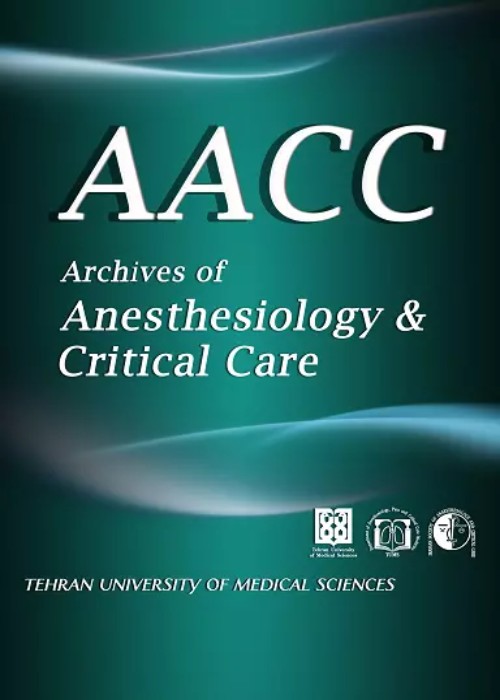A Randomized, Double-Blind, Comparative Study of the Analgesic Efficacy of Perineural Dexmedetomidine as Adjuvant to Ropivacaine versus Ropivacaine Alone in Ultrasound Guided Saphenous Nerve Block after Anterior Cruciate Ligament Reconstruction Surgery
The saphenous nerve block has been effectively used for pain treatment after knee surgeries, however, a single-shot saphenous nerve block with a long-acting local anesthetic usually provides a relatively short duration of postoperative analgesia. Dexmedetomidine is a highly selective alpha-2 adrenoceptors agonist and its perineural injection as an additive to local anesthetics has been shown to improve postoperative analgesia. The aim of this prospective, randomized double-blind study was to evaluate the effects of adding dexmedetomidine to ropivacaine on the quality of postoperative analgesia with ultrasound-guided saphenous nerve block after anterior cruciate ligament reconstruction surgery of the knee.
40 ASA class I–II patients undergoing arthroscopic anterior cruciate ligament reconstruction surgery under general anesthesia were randomly divided into 2 groups of 20 patients each. At the end of surgery, ultrasound-guided saphenous nerve block was performed with either 10 ml ropivacaine 0.5% alone, or 1 µg/kg dexmedetomidine added to 10 ml of ropivacaine 0.5%. The total volume of injected solutions was increased to 12 ml by adding normal saline. The postoperative pain scores as well as fentanyl consumption through intravenous patient-controlled analgesia pump, hemodynamic parameters, sedation scores, and adverse effects were assessed every 1 hour to 6 hours and then every 2 hours to 24 hours.
There were significantly lower postoperative pain scores in the ropivacaine plus dexmedetomidine group compared to ropivacaine alone group at all postoperative measured time points. The total amount of fentanyl consumption and sedation scores after surgery was significantly higher in group ropivacaine alone than in group ropivacaine plus dexmedetomidine. Systolic blood pressure and heart rate within 24 hours after surgery were significantly lower in the dexmedetomidine+ ropivacaine group than in the ropivacaine alone group. However, no bradycardia and hypotension were detected in any of the patients.
Perineural administration of 1 µg/kg of dexmedetomidine as an adjuvant to ropivacaine 0.5% for ultrasound guided saphenous nerve block significantly reduced pain scores and opioid requirements in the first 24 h after ACLR surgery compared to ropivacaine alone without any significant side effects.
- حق عضویت دریافتی صرف حمایت از نشریات عضو و نگهداری، تکمیل و توسعه مگیران میشود.
- پرداخت حق اشتراک و دانلود مقالات اجازه بازنشر آن در سایر رسانههای چاپی و دیجیتال را به کاربر نمیدهد.


